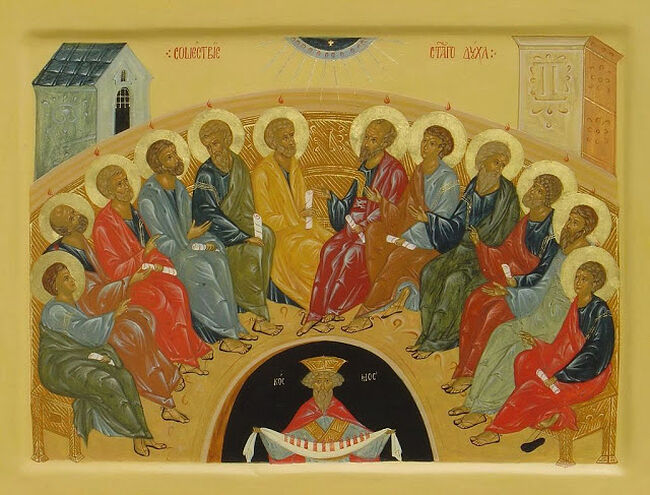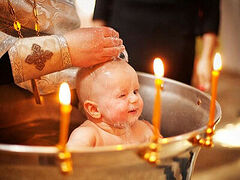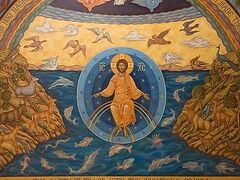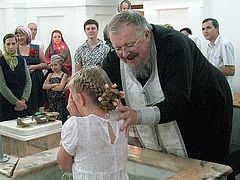Question: "What is the difference between the Baptism in water and the Baptism by the "Holy Spirit and Fire" in Acts 1:5?"
In Acts 1:5, Christ said: "For John truly baptized with water; but ye shall be baptized with the Holy Spirit not many days hence," which is very similar to what St. John the Baptist said himself:
"I indeed baptize you with water unto repentance: but he that cometh after me is mightier than I, whose shoes I am not worthy to bear: he shall baptize you with the Holy Spirit, and with fire" (Matthew 3:11, cf. Luke 3:16).
What St. John Chrysostom points out is that Christ did not say that the Apostles would be baptized with water in the upper room, because they had already been baptized with water unto repentance, but that this did not include the gift of the Holy Spirit, because the Holy Spirit was not yet given. Being baptized with the Holy Spirit is the more essential part of baptism:
"...why does Christ say, “Ye shall be baptized,” when in fact there was no water in the upper room? Because the more essential part of Baptism is the Spirit, through Whom indeed the water has its operation; in the same manner our Lord also is said to be anointed, not that He had ever been anointed with oil, but because He had received the Spirit. Besides, we do in fact find them receiving a baptism with water [and a baptism with the Spirit], and these at different moments. In our case both take place under one act, but then they were divided" (Homily 1 on Acts).
So in Christian baptism, we are baptized both with water, and with the Holy Spirit, which is why in the Orthodox Church we baptize a person in water, and anoint them with Holy Chrism, all in one service. The baptism of John foreshadowed Christian Baptism, and in Christ's baptism, He was both baptized in water, and affirmed by the Holy Spirit in the form of a dove.
This is made even more plain in Acts 19:1-7, where St. Paul encountered a group of people who had only been baptized with the baptism of St. John:
"And it came to pass, that, while Apollos was at Corinth, Paul having passed through the upper coasts came to Ephesus: and finding certain disciples, he said unto them, Have ye received the Holy Spirit since ye believed? And they said unto him, We have not so much as heard whether there be any Holy Spirit. And he said unto them, Unto what then were ye baptized? And they said, Unto John's baptism. Then said Paul, John verily baptized with the baptism of repentance, saying unto the people, that they should believe on him which should come after him, that is, on Christ Jesus. When they heard this, they were baptized in the name of the Lord Jesus. And when Paul had laid his hands upon them, the Holy Spirit came on them; and they spake with tongues, and prophesied. And all the men were about twelve."
So in the case of these people, who had received only the shadow of Christian baptism, when they were given the reality which had been foreshadowed, they then received the Holy Spirit, which is the baptism of fire St. John the Baptist and Christ spoke of.





